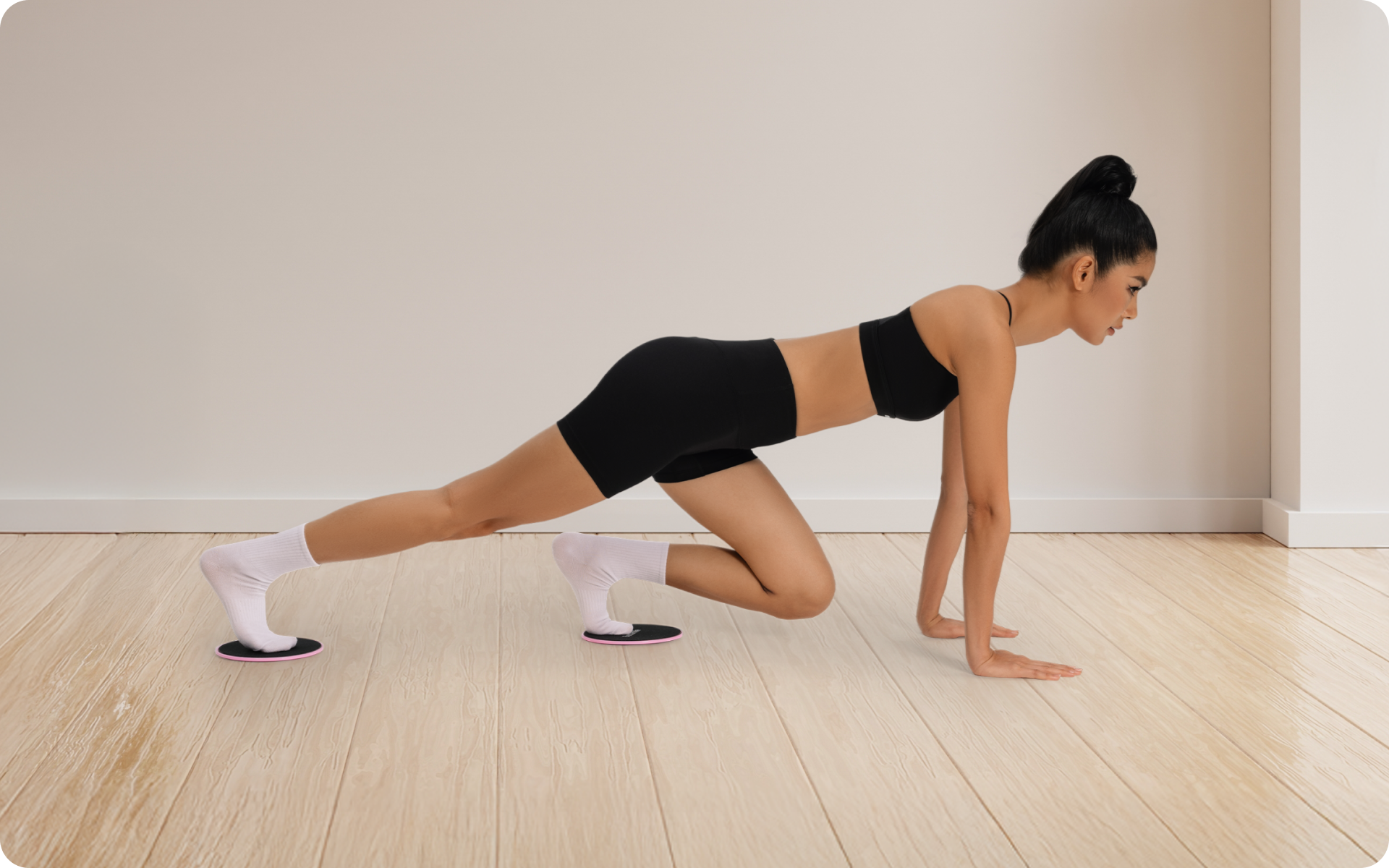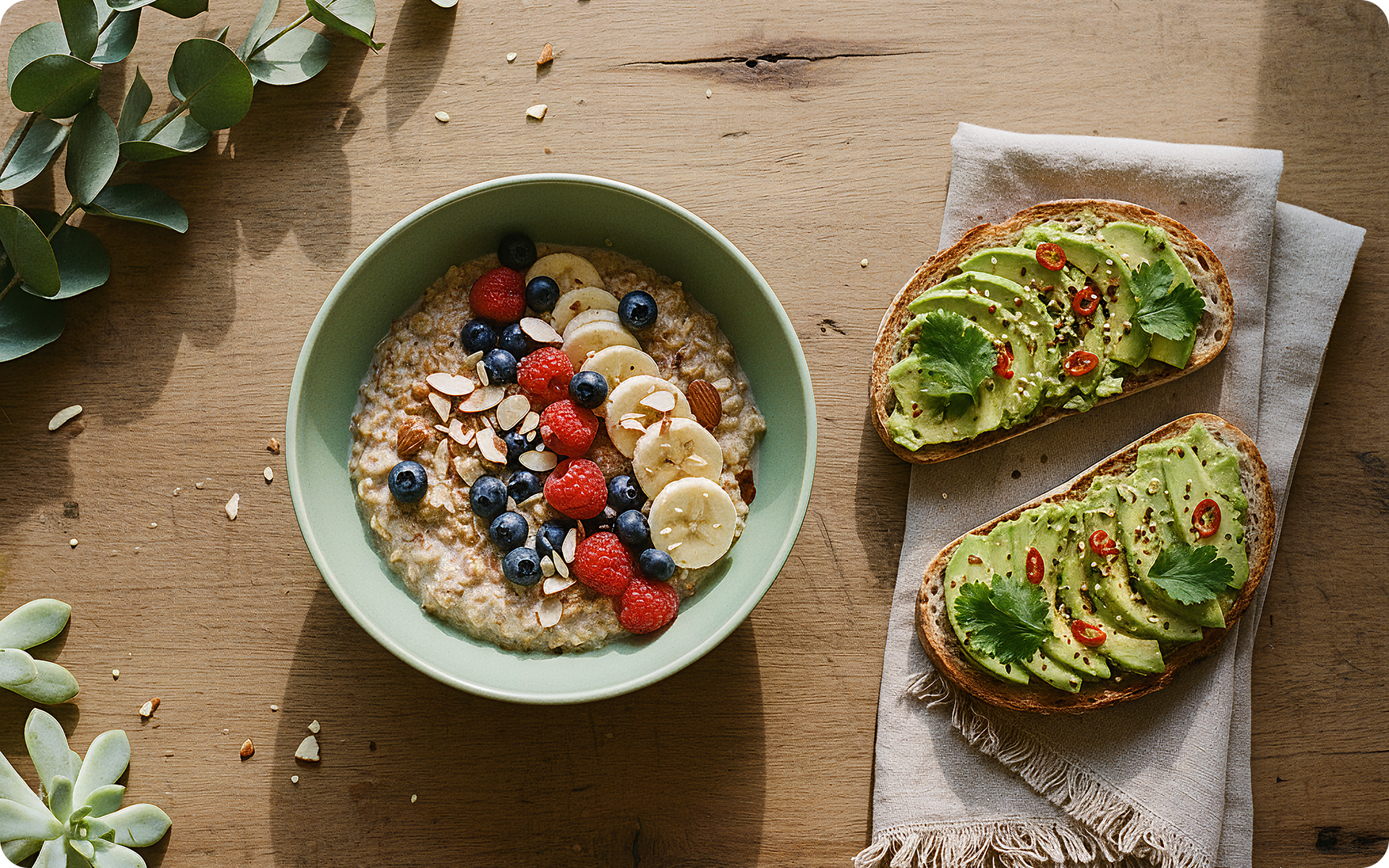Are you ever curious about what happens when you’re asleep? When you have one of those crazy dreams and wake up with your heart racing. Or you wake up feeling groggy and can’t tell why. Well, it’s not because of the giant squid chasing you in your dream.
Get your personalized
meal plan!
Your body stays active all day. Your brain keeps the vital bodily functions running even when you’re at rest. This process requires energy. For energy to be produced, calories need to be burned. So do you burn calories when you sleep? You do.
Do You Burn Calories When You Sleep?
Most people believe that we only burn calories when physically active. While that sentiment is partly true, the accurate version should be when our brains are engaged. The question then becomes, do you burn more calories when you sleep or awake? While the number of calories burned while awake is higher, the importance of calories burned sleeping shouldn’t be downplayed.
Your body needs energy to sustain breathing, blood circulation, temperature regulation, growth, and repair. This energy is called the basal metabolic rate, and it accounts for 80% of all energy consumption in a day. When you’re at sleep, you burn an average of 50 calories an hour. Your brain will use up 20% of calories consumed when at rest to give it energy for sustenance (1).
Read More: Resting Calories: Things About Your Metabolism That Nobody Taught You
How Many Calories Do You Burn When You Sleep?
We indeed burn calories both during the day and night. However, the pertinent question becomes, do you burn more calories when you sleep or awake? And if so, how many calories do you burn when you sleep? In addition to the basal metabolic functions, we tend to engage in other physical activities during the day.
For instance, walking will significantly increase the number of calories burned. As an activity, it accounts for about 352 calories for a person weighing 150 lbs walking at four mph (2). The physical activities you engage in during the day and basal metabolic functions will result in higher calorie consumption.
You may want to know the number of calories you use up at night for one reason or the other. It may be for medical reasons, to track your weight loss progress, or simply because it’s cool? There are several methods of determining the number of calories you used up at night. However, the most common two are using a calorimeter or the Harris-Benedict Equation (9).
A Calorimeter
A calorimeter analyzes energy consumed by monitoring the oxygen and carbon dioxide intake and expulsion (11). This process is carried out in a highly regulated laboratory environment. People who opt for this method are usually required to observe strict requirements.
The requirements include; sleeping for a minimum of 8 hours before the test, abstaining from exercise for 24 hours, and fasting for 12 hours (11). These precautions ensure the most accurate readings are obtained. Readings are then collected in the morning in a temperature-regulated setting.
Using a calorimeter, however, is an expensive procedure. And if you’re not a fan of staying hungry for 12 hours, fear ye not. There is another way to know how many calories you used up the previous night.
Your basal metabolic rate can be calculated using the Harris-Benedict Equation (9). This equation factors the gender, weight, height, and age of individual persons to determine their Basal Metabolic Rates.
BMR For Males
It is calculated as follows:
- BMR= 66.5 + (13.8 × weight in kg) + (5 × height in cm) – (6.8 × age in years)
BMR For Females
BMR is calculated as follows:
- BMR= 655 + (9.6 × weight in kg) + (1.8 × height in cm) – (4.7 × age in years)
The above equations will give the Basal Metabolic Rates for both men and women when awake over 24 hours. To get your hourly consumption rate of calories, divide the obtained values by 24. Then, multiply the results by 0.85 to obtain calories burned sleeping (9).
So how many calories do you burn when you sleep for 8 hours? For instance, a 24-year-old man weighing 70kg and is about 300cm tall, and sleeps for 8 hours, their BMR will be:
- BMR= 66.5 + (13.8 ×70) + (5×300) – (6.8×70) = 2056.5 calories.
- The hourly consumption rate becomes 2056.5÷24= 85.69 calories per hour.
- Factoring in the slower metabolism rate, 0.85×85.69= 72.84 calories per hour when sleeping.
- Hence calories burned when sleeping for 8 hours becomes 72.84 × 8=582.72 calories.
The equations, however, have certain limitations. Factors like genetics, medical conditions, and body composition are not considered. However, your body mass index can be obtained using the formula:
- BMI= weight (ibs) / [height (in)]2 × 703
Generally, a Body Mass Index of below 18.5 will indicate one is underweight, and over 24.9 will be considered overweight (9).
BetterMe app will kick you out of the mental funk, shake off your extra weight, rid you off you energy-zapping habits, and help you sculpt the body of your dreams. Intrigued? Hurry up and change your life for the better!
Which Factors Determine How Many Calories You Burn When You Sleep?
The number of calories burned during sleep is not a constant figure. How your body burns calories will be directly influenced by an array of external and internal factors. The following list explains each factor and the effect they have on the BMR when sleeping:
-
Sleep Cycle
Sleep occurs in two main stages, Non-Rapid Eye Movement and Rapid Eye Movement. In one night, you may cycle through both stages about three to four times. During N-REM sleep, your brain’s activity is slower, leading to reduced basal metabolic rates (16). Also, N-REM sleep occurs in three stages with increased intensity leading to REM sleep (12).
In contrast, during the REM stage, your brain’s activity is faster, leading to increased metabolism. These changes in the basal metabolic rates directly affect the number of calories burned. Increased brain activity means that more calories will be consumed during REM sleep than N-REM (12, 16).
-
Late-Night Snacking
Everyone gets the occasional craving for a midnight snack. However, when you pick that apple or scoop that parfait, relishing its heavenly taste, does it affect your metabolism?
Studies show that late-night snacking does not lower your metabolism (19). Eating results in thermogenesis which causes a temporary hike in your basal metabolic rates (5). The focus should not be on time; it should be on what you eat. Now drop that parfait and pick up an extra apple!
-
Room Temperature
We all need to chill out before we sleep, literally. One study found that sleeping in a cold environment resulted in the accumulation of metabolically-active brown fat, which prompted positive metabolic changes (18).
-
Diet
A healthy diet can help boost your quality of sleep. Improving your body’s muscle-to-fat ratio and healthy dietary patterns will result in more calories being burned.
Read More: The Fundamentals Of A Balanced Diet: Foods, Benefits, Weight Loss
-
Health Conditions
Sometimes even when you exercise and observe a healthy diet, your basal metabolic rate when sleeping may be slow. When this happens, certain medical conditions like hypothyroidism may be the culprit. You should see a doctor for evaluations and recommendations if you suspect this is the case.
-
Body Structure
Muscles lead to burning up more calories than fats, whether you’re awake or not (22). So exercising during the day to put in some more muscles is beneficial to you even when you’re sleeping.
Do You Burn More Calories When You’re Sleep Deprived?
What happens when you don’t get enough sleep? Do you burn more calories when you don’t sleep enough? Being sleep-deprived means that you’re not getting enough sleep because of various reasons.
What effects does being sleep deprived have on your Basal Metabolic Rates? Do you burn more calories when sleep deprived or not? You most certainly not.
To effectively burn calories when sleeping, you need to be comfortable and relaxed. How you sleep matters a lot since it affects your comfort. So if you’ve been wondering, “do you burn calories when you sleep sitting up?” The answer is yes since the body is constantly burning calories. Just not as effective in this case, because your sleep quality may be poorer.
According to the Centre for Disease Control, adults should get an average of 7-9 hours of sleep per day (8). This figure, however, varies from person to person. Interruptions to sleep can be irritating but continuous lack of quality sleep will affect your performance, ability to function, and health.
Quality Of Sleep
Quality of sleep should be emphasized just as quantity. If you get low-quality sleep, the result will be feeling tired the following day (8). So no, the giant squid is not responsible for your tiredness. Your quality of sleep is.
The BMR of people getting a better sleep quality is also considerably higher than those getting a lower quality (12). So do you burn more calories when you don’t sleep well? You don’t. Sleeping for more extended hours doesn’t mean you’re burning more calories.
There is an inverse effect in your Basal Metabolic Rates when you oversleep due to the disturbed sleeping pattern (12). So you burn more calories when you sleep better, not longer.
Low-quality sleep may be caused by:
- Frequent waking up at night.
- Medical conditions that make it hard to sleep like sleep apnea.
- Extreme environments that are either too hot, too cold, or very noisy.
Sleep Deprivation Health Risks
People getting low-quality sleep may exhibit irritability, sporadic mood changes, and difficulty in remembering. Being deprived of sleep may affect various aspects of your health in the following ways:
-
Lowered Immunity Levels
Your body’s immunity helps you fend off attacks from microbes. Studies show that being sleep deprived of sleep makes you prone to infections. These infections also take a longer time to be resolved in people who are sleep deprived (12).
-
Increased Body Weight
Sleep affects hormones that trigger hunger. When you are sleep-deprived, there can be an imbalance in these hormones leading to more food intake. Sleep restriction may lead to increased fat storage and impede weight loss efforts (10).
-
Increased Risk Of Developing Cardiovascular Diseases
Your body regenerates and rebuilds during sleep. This regeneration process helps blood vessels heal and also regulates blood pressure and sugar levels. Sleep deprivation can therefore increase the chances of developing cardiovascular diseases (14).
-
Hormonal Imbalance
Deprivation of sleep can affect and inhibit the production of growth hormones. Also, insufficient sleep affects the production of hormones like norepinephrine and cortisol that are associated with stress, and hormones like leptin and ghrelin which regulate appetite (12).
-
Difficulty In Memorizing And Forming New Memories
Insufficient sleep negatively impacts the prefrontal cortex of your brain that deals in reasoning. Also, it affects the amygdala that regulates emotions. Sleep deprivation can negatively affect the two regions, causing effects like difficulty in learning (14).
Lean and toned up body isn’t just a far-fetched fantasy. Check out the BetterMe app and watch it propel your weight loss journey into high gear!
Secrets To A Good Night’s Sleep
You should try as much as possible to get the recommended hours of sleep, but if you are having trouble having quality sleep, try these tips:
-
Create And Maintain A Routine
Consistency is critical if you want to develop a healthy sleeping pattern. When you keep altering the time you go to bed, you confuse your biological clock. Regular schedules go along to ensure you get the much-needed rest.
Creating and sticking to sleep schedules are, however, different things. To help you follow the plan, develop a routine that will alert you that it’s time to wind down. For example, listening to relaxing music or reading a book. Doing this repeatedly at the same time before sleeping alerts the body that it’s almost time to sleep.
-
When It’s Time To Sleep, Turn Off All Electronic Devices
Electronic devices like phones and laptops are associated with stress, tension, and distraction. When that work phone call comes in, or you receive that email, you’re behind on your month’s bills. This kind of distraction will only make it harder to sleep.
Also, these devices emit blue light that may deceive the brain into thinking it’s daytime (21). It will thus become harder to wind down in such a setting.
-
Avoid Taking Stimulants And Alcohol Before Bed
We’ve all had to work late at some point, brewed that cup of coffee to help us focus. You should not, however, make it a norm to take stimulants before bed. Stimulants like coffee may take some time before wearing off, making it harder to sleep. Alcohol, on the other hand, makes you sleepy but will constantly disrupt the sleeping cycle.
-
Take Shorter Naps During The Day
Having a lot of naps or lengthy ones will make it harder to fall asleep at night. Always try to keep yourself occupied during the day. Engaging in physical activities that keep you away from that couch or bed will help achieve this goal.
-
Use Earplugs If You Are In A Noisy Environment
Noise can be a massive distraction to falling asleep. It will constantly disrupt your sleep cycle, waking you up, therefore, interfering with the quality of sleep you get. Earplugs can significantly help to block out noise, enhancing your quality of sleep.
-
Sleep in a dark environment
Settings like cities are well lit, even at night. These lights may be a distraction when sleeping. It would help if you tried using black curtains to block out these lights. Remember, the darker your room is, the better your quality of sleep becomes.
-
Get the Perfect Room Temperature
Setting your AC at an optimum temperature of 66F goes a long way in ensuring you get quality sleep. Cool temperatures will help you fall asleep and may increase your basal metabolic rate (18).
Conclusion
Your brain is permanently active. We don’t stop breathing when we are sleeping. Neither does blood stop circulating nor do we stop perceiving changes in the environment when we are asleep. All these metabolic activities require energy to run, hence the need to constantly burn calories.
So then, do you burn more calories when you sleep or when you’re sedentary in comparison to being physically active? No, you don’t; however, energy is always required for basal metabolic functions. The quality of sleep you get at night will directly influence your BMR. So make sure you’re getting the best.
DISCLAIMER:
This article is intended for general informational purposes only and does not address individual circumstances. It is not a substitute for professional advice or help and should not be relied on to make decisions of any kind. Any action you take upon the information presented in this article is strictly at your own risk and responsibility.
SOURCES:
- Calories burned in 30 minutes for people of three different weights (2021, harvard.edu)
- Calories Burned Walking, Hiking, Climbing or Backpacking (2015, nutristrategy.com)
- Can I boost my metabolism to lose weight? (2021, mayoclinic.org)
- Chill Out: Sleeping in Cooler Temperatures May Increase Your Metabolism (2014, utah.edu)
- Diet-Induced thermogenesis: fake friend or foe (2018, bioscientifica.com)
- Healthy Sleep Tips (2020, sleepfoundation.org)
- How many hours of sleep are enough for health (2019, mayoclinic.org)
- How Much Sleep Do I Need? (2017, cdc.gov)
- How to calculate the calories a person burns when sleeping (2019, medicalnewstoday.com)
- Influence of sleep restriction on weight loss outcomes associated with caloric restriction (2018, pubmed.gov)
- Predicting resting energy expenditure in young adults (2015, pubmed.gov)
- Sleep and Metabolism: An Overview (2010, ncbi.nlm.nih.gov)
- Sleep and metabolism: an overview (2010, pubmed.gov)
- Sleeping effects on breathing and respiratory diseases (2009, nih.gov)
- Sleep tips: 6 steps to better sleep (2020, mayoclinic.org)
- Stages of Sleep (2020, uofmhealth.org)
- Sugar for the brain: the role of glucose in physiological and pathological brain function (2013, pubmed.gov)
- Temperature-acclimated brown adipose tissue modulates insulin sensitivity in humans (2014, pubmed.gov)
- The Health Impact of Nighttime Eating: Old and New Perspectives (2015, ncbi.nlm.nih.gov)
- What to know about sleep deprivation (2020, medicalnewstoday.com)
- What’s in color? The Unique Human Health Effects of Blue Light (2016, ncbi.nlm.nih.gov)
- Your body burns calories while you sleep – here’s how to burn the most (2017, insider.com)
















